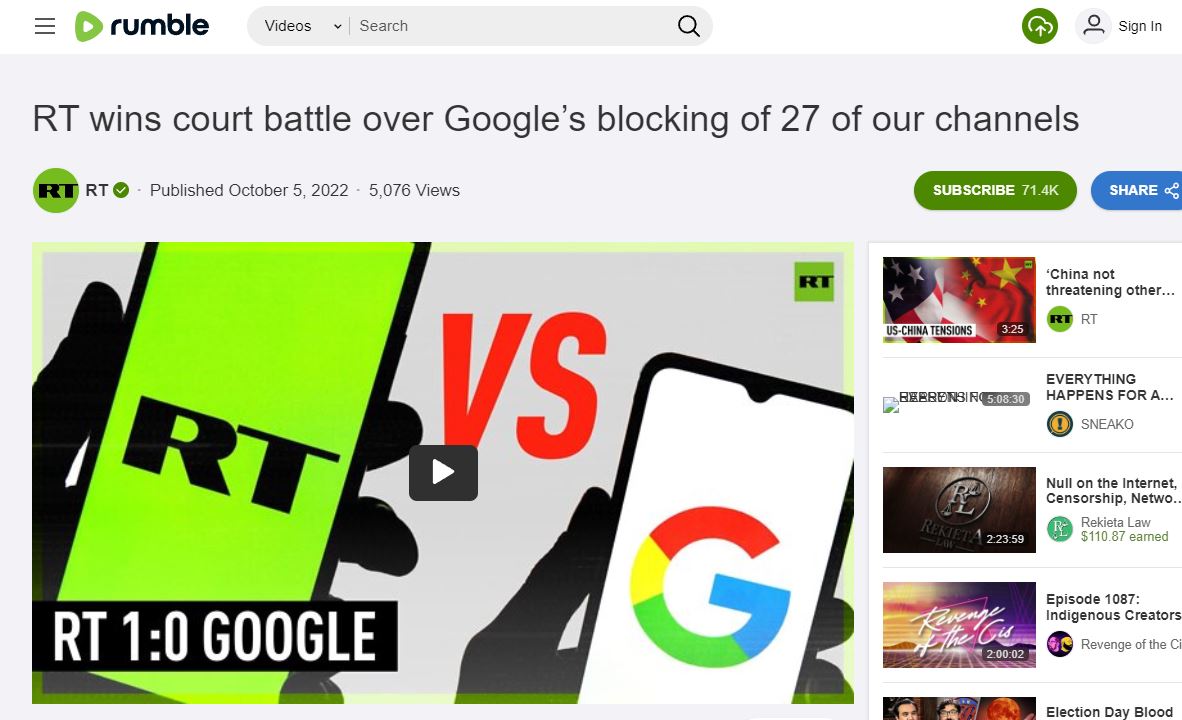U.S. and Canada-based video platform Rumble is shutting down in France after refusing the European nation’s demand that it block pro-Russian news sources, according to its CEO.
Rumble, founded in 2013 as a free-speech alternative to YouTube, where conservatives often find themselves censored, said it would rather not operate in France than submit to the administration of French President Emmanuel Macron’s demands it censor pro-Russian content from sites including RT France and Sputnik. Rumble CEO Chris Pavlovski said the company will challenge the decision in court.
“The French Government has demanded that Rumble block Russian news sources,” Pavlovski said Wednesday. “Like Elon Musk, I won’t move our goalposts for any foreign government. Rumble will turn off France entirely (France isn’t material to us) and we will challenge the legality of this demand.”
The French Government has demanded that Rumble (@rumblevideo) block Russian news sources. Like @elonmusk, I won’t move our goal posts for any foreign government.
Rumble will turn off France entirely (France isn’t material to us) and we will challenge the legality of this demand. https://t.co/a4Nn4S1MMf
— Chris Pavlovski (@chrispavlovski) November 1, 2022
Pavlovski’s mention of Musk, the new owner of Twitter, referenced the billionaire’s refusal in March to block Russian news sources from his Starlink satellite internet service, which he provides free for Ukraine amid its invasion by Russia.
European nations have attempted to silence any pro-Russian news sources amid the war, which began in February. RT, the Moscow-controlled television network previously known as Russia Today, was essentially purged from western nations in the wake of the invasion. The European Union and Canada all banned the network, and it shut down U.S. production after major U.S.-based social media platforms blocked its content, cable and streaming services dropped its programming, and Apple and Microsoft removed its app from their offerings.
While RT France and Sputnik were already banned from airing on television or online in France and elsewhere in the EU, they got around the sanctions by putting their content on social media platforms not based in the European Union.
source dailywire.com
Ask me anything
Explore related questions





